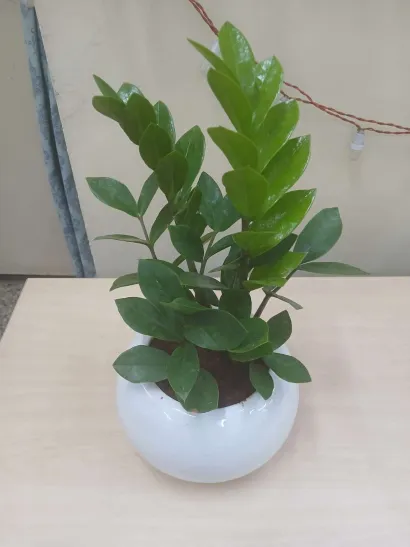On my senior officer’s desk in Navi Mumbai, a small potted plant sat quietly, its delicate green leaves reaching toward the window, absorbing the warmth of the morning sun. To an outsider, it was just another office decoration, but to him, it was a connection to a world that now seemed impossibly far away—his home in Manipur.
One day, as we sat discussing work, he gently caressed the leaves of the plant and sighed. Then, as if caught in a moment of deep reflection, he unlocked his phone and showed me a picture of his home. Lined along the entrance were similar potted plants, standing in neat rows, their vibrant greens contrasting against the wooden walls of his house.
“This,” he said with a faint smile, “is what home used to feel like.”
Manipur, before the ethnic clashes, was a land of peace, music, and unshakable cultural pride. It was a place where people lived with a quiet joy, celebrating their traditions with unmatched enthusiasm. The beats of the dhol and the graceful movements of Ras Lila dancers once filled the air during festivals. Martial artists practiced Thang-Ta, keeping alive an age-old discipline of strength and agility. Music was woven into the fabric of daily life, with folk songs echoing through the lush green hills and floating over the vast waters of Loktak Lake.
Sports is another heartbeat of Manipur. Children and adults alike played football on open fields, and the state proudly produced champions in boxing, weightlifting, and archery. Polo, a game that had its roots in Manipur, was not just a sport but a legacy passed down through generations. Families gathered to watch matches with pride, celebrating their heritage through every swing of the mallet.
And then, there was the unity—the close-knit communities where neighbors were like family, where women ran Ima Keithel, the world’s largest all-women market, balancing trade with tradition. Life had its struggles, but there was harmony. There was hope.
Now, all of that seemed like a distant memory. Ethnic clashes had torn apart neighborhoods, turning once-friendly streets into battlegrounds. Politics had played its hand, deepening the divides and prolonging the suffering. Fear had crept into the hearts of those who once walked freely.
One night, as violence escalated, this officer’s family had to flee. The killer mobs were closing in, and staying any longer would mean certain death. With great difficulty, and only through the intervention of the paramilitary forces deployed in Manipur, they managed to escape to Delhi. The children were pulled out of school overnight, their books and classrooms left behind in the chaos. His elderly parents, who had spent a lifetime in the land they called home, were uprooted, forced to abandon the soil to which they clung so dearly.
They could take only what they could carry—just a few belongings, barely enough to start over. But the real loss was not material. They left behind their home—not just four walls of bricks, cement, and wood, but a space that held their memories, their love. Every brick had been laid with care, every piece of furniture chosen with warmth, every kitchen utensil an unspoken witness to family meals, laughter, and togetherness.
Now, it was all gone. Vandals had destroyed everything. Their house, once a symbol of love and belonging, was no longer theirs. It had been taken over by those who thrived in destruction, those who had no regard for the emotions that built it.
The children have somehow been placed in a school in Delhi, adjusting to a life they never asked for. His elderly parents, now sheltered in a small, dingy rented house, sit quietly, lost in a world that feels foreign to them. They have nothing to do, no familiar streets to walk on, no neighbors to chat with. A lifetime of comfort and belonging had been stripped away in a single night.
Yet, despite the pain, this officer sitting in his office in Navi Mumbai clings to hope. The small potted plant on his desk is more than just a plant—it is a reminder of the home he loved, the life he once had. Every morning, he carefully waters it, ensuring it has enough sunlight. He watches it grow, as if willing it to thrive against all odds.
Perhaps, in nurturing this tiny piece of greenery, he is holding on to something bigger—the belief that one day, Manipur will heal. That just as the plant flourishes despite being far from its native soil, his homeland too will find its way back to peace.
 ZZ plant
ZZ plant